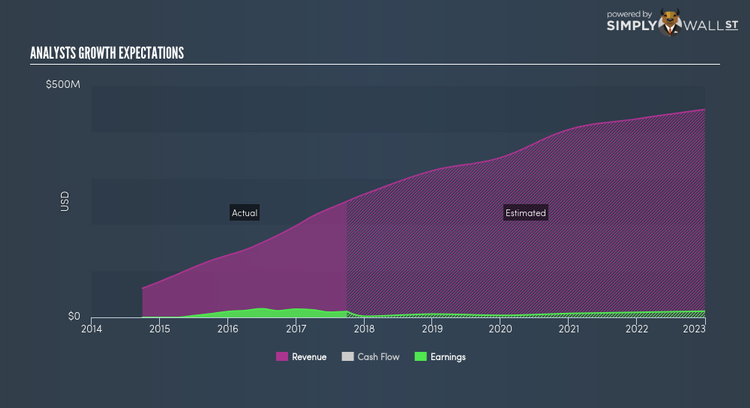At $23.72, Is National Storage Affiliates Trust (NYSE:NSA) A Buy?

National Storage Affiliates Trust (NYSE:NSA), a reits company based in United States, received a lot of attention from a substantial price movement on the NYSE in the over the last few months, increasing to $27.59 at one point, and dropping to the lows of $23.17. This high level of volatility gives investors the opportunity to enter into the stock, and potentially buy at an artificially low price. A question to answer is whether National Storage Affiliates Trust’s current trading price of $23.72 reflective of the actual value of the small-cap? Or is it currently undervalued, providing us with the opportunity to buy? Let’s take a look at National Storage Affiliates Trust’s outlook and value based on the most recent financial data to see if there are any catalysts for a price change. View our latest analysis for National Storage Affiliates Trust
What is National Storage Affiliates Trust worth?
The stock seems fairly valued at the moment according to my valuation model. It’s trading around 8% above my intrinsic value, which means if you buy National Storage Affiliates Trust today, you’d be paying a relatively fair price for it. And if you believe the company’s true value is $22.02, then there isn’t really any room for the share price grow beyond what it’s currently trading. Furthermore, National Storage Affiliates Trust’s share price also seems relatively stable compared to the rest of the market, as indicated by its low beta. This may mean it is less likely for the stock to fall lower from natural market volatility, which suggests less opportunities to buy moving forward.
What kind of growth will National Storage Affiliates Trust generate?
Investors looking for growth in their portfolio may want to consider the prospects of a company before buying its shares. Although value investors would argue that it’s the intrinsic value relative to the price that matter the most, a more compelling investment thesis would be high growth potential at a cheap price. Though in the case of National Storage Affiliates Trust, it is expected to deliver a highly negative earnings growth in the next few years, which doesn’t help build up its investment thesis. It appears that risk of future uncertainty is high, at least in the near term.
What this means for you:
Are you a shareholder? NSA seems fairly priced right now, but given the uncertainty from negative returns in the future, this could be the right time to reduce the risk in your portfolio. Is your current exposure to the stock optimal for your total portfolio? And is the opportunity cost of holding a negative-outlook stock too high? Before you make a decision on the stock, take a look at whether its fundamentals have changed.
Are you a potential investor? If you’ve been keeping tabs on NSA for a while, now may not be the most advantageous time to buy, given it is trading around its fair value. The stock appears to be trading at fair value, which means there’s less benefit from mispricing. Furthermore, the negative growth outlook increases the risk of holding the stock. However, there are also other important factors we haven’t considered today, which can help gel your views on NSA should the price fluctuate below its true value.
Price is just the tip of the iceberg. Dig deeper into what truly matters – the fundamentals – before you make a decision on National Storage Affiliates Trust. You can find everything you need to know about National Storage Affiliates Trust in the latest infographic research report. If you are no longer interested in National Storage Affiliates Trust, you can use our free platform to see my list of over 50 other stocks with a high growth potential.
To help readers see pass the short term volatility of the financial market, we aim to bring you a long-term focused research analysis purely driven by fundamental data. Note that our analysis does not factor in the latest price sensitive company announcements.
The author is an independent contributor and at the time of publication had no position in the stocks mentioned.

